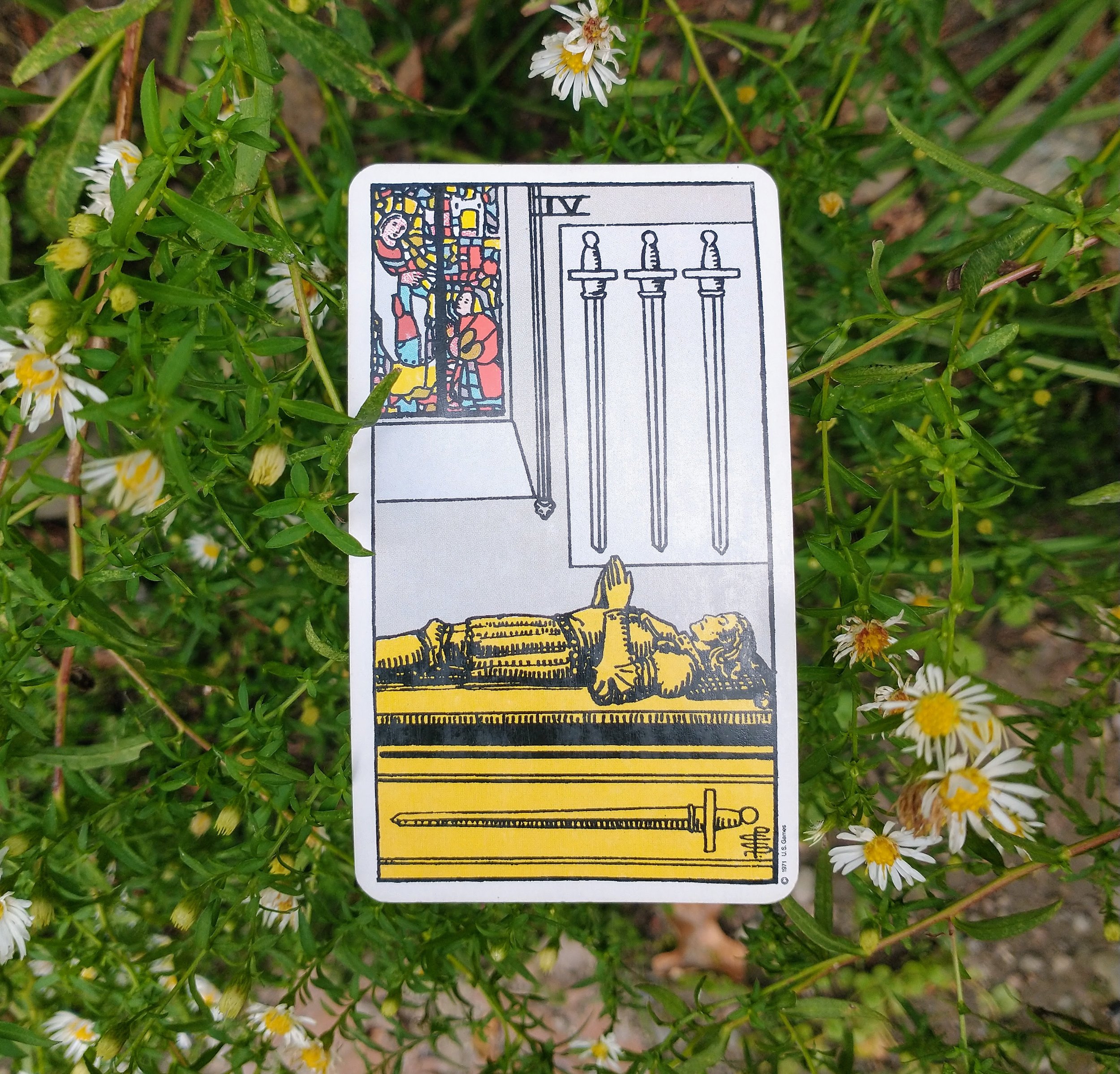Mirror Cards | 4 of Swords : 6 of Cups
The Tarot’s Minor Arcana often impart their deepest wisdom when considered in conversation. For example, we learn more about the Five of Pentacles when we examine it in relation to the Fives across the other three suits (Cups, Wands, and Swords). Similarly, we can think about how cards interact as part of a sequence (5s, 6s, and 7s, for instance). But what about cards that have no obvious relationship in the deck? If we look closely, some of the Minor cards bear resemblances that echo one another. I call these mirror cards, because they present a new perspective on a similar theme.
Let’s look at the 4 of Swords and the 6 of Cups, and in particular, the secondary figures that are depicted. These cards are about memory and one’s relationship to time and its emotional current. Memory is a function of living in the present; when we avoid the past, we find ourselves with the 4 of Swords, and when we avoid the present, the 6 of Cups may become significant.
In the 4 of Swords a person’s rigid form is framed by swords and the stone walls of a church or cathedral. It is as though they have retreated to a cave in which their thoughts (Swords) are ordered and controlled. The person has closed their eyes to their surroundings, and whether in meditative repose, a comatose sleep, or death, the goal is the same: to shut out time by dissolving into the present stillness, becoming one with their tomb. The hint that memory is a factor comes from the stained glass window in the upper left corner. There we see two figures, one kneeling in supplication before the other, suggesting some kind of exchange.
When viewed alongside the 6 of Cups, we see that the figures in the window are a close replica to those in the 6 of Cups. In the latter card, they appear childlike, with an innocence and glowing sweetness to their interaction. The only hint that all is not as it seems is the retreating adult figure in the background. Who is this colorless, shadowy individual? Perhaps they represent the person to whom this honeyed memory belongs.
In both cases, the individual has disconnected from time. In the 4 of Swords, the past is fractured and 2-dimensional. The memory has become stylized and separate, enabling the person to rest and experience peace. Perhaps the meaning behind this memory is just too painful to confront. And yet by shutting down, they are cut off from life, and any future.
Inversely, the memory depicted in the 6 of Cups appears to be even more vivid than it was in reality. It is infused with feelings accumulated over time, consuming the person, who has been reduced to a monochrome shadow. While the act of remembrance is a source of pleasure for this person, it has become the foreground of their present experience, an escape that cuts them off from their present and their future.
Advice from the 4 of Swords: Find ways to pull yourself back to the present moment. Consider listening to guided meditation. Focus on things unrelated to the memory that are right in front of you - the colors, sounds, and scents of your world. How do they make you feel? Describe them in detail.
Advice from the 6 of Cups: Allow yourself bite-sized visits to the past. Spend a designated time per day (5 or 10 minutes) allowing your mind to wander wherever it wants. When the time is up, switch to an activity you enjoy that gives you a feeling of calm and peace.

